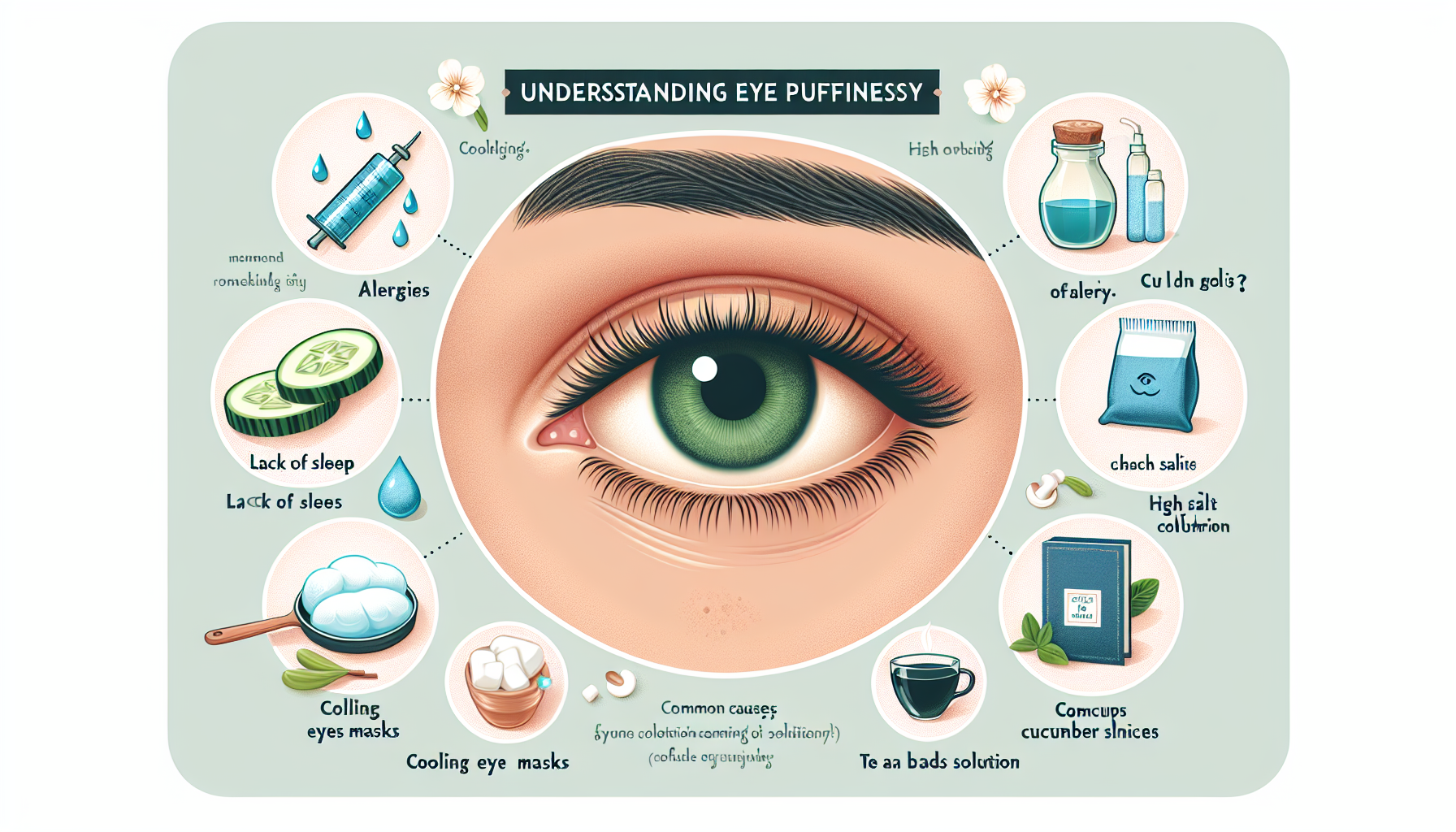Have you ever woken up with swollen eyes feeling like you didn’t sleep at all? Or noticed your eyes puffing up after shedding some tears or even a contagious yawn? The truth is, the delicate area around our eyes can swell up for a variety of reasons more often than we might expect in our day-to-day lives. While there are countless remedies to deal with puffy eyes, frequent swelling around the eyes could point to deeper health issues. Let's dive into some common causes of eye swelling that many of us might relate to.
-
Lack of Sleep
Ever wondered why your eyes seem to balloon up after a night of short sleep? According to Dr. Anar Mikailov, co-founder of Skintensive and dermatologist, "Lack of sleep increases certain hormones that lead to fluid retention." This fluid accumulation results in swelling. Our bodies use sleep as a time to detox, and without adequate sleep, toxins start building up, which, among other health issues, can lead to puffy eyes. -
Sleeping Position
Interestingly, it’s not just lack of sleep that can cause puffiness, but how we sleep too. Dr. Mikailov points out that pressing your face into your pillow encourages fluids to pool around your eyes, causing swelling. A simple change? Try adding an extra pillow and sleep with your head elevated. This small adjustment allows gravity to pull the fluids away from your eyes. -
Hormonal Changes
Several of us are familiar with the rollercoaster of hormones. For some, the days leading up to menstruation come with a bit of swelling. Dr. Mikailov explains, "High levels of progesterone cause the body to retain extra fluid, manifesting as puffiness around the face and eyes." -
Allergies
If springtime brings on itchy, swollen eyes, you may not be alone. Seasonal allergies are notorious for increasing histamine production, which leads to inflammation and swelling, particularly noticeable on the face. -
Dehydration
You might think of puffy eyes as a sign of excess fluid, but dehydration can be a culprit too. When your body lacks water, it clings onto whatever fluid it does have, leading to perceived swelling or fluid retention. -
Crying
We’ve all been there— after a good cry, our eyes are left swollen and tender. "The tissues around your eyes absorb the teary fluid and inflame," Dr. Mikailov notes, especially if we’re quick to rub those tears away. Dermatologist Dr. Marisa Garshick agrees, emphasizing that crying prompts inflammation, resulting in puffiness. -
Alcohol Consumption
Enjoyed one too many cocktails? Dr. Rebecca Marcus warns, "Alcohol can cause the face to retain fluid and swell." Additionally, it can disturb your sleep quality, further aggravating the issue of swollen eyes. Plus, it’s a known inflammatory factor, adding another layer leading to puffy eyes. -
Too Much Sodium
Ever notice swelling after a salty snack? High sodium levels cause the skin to appear drier while prompting the body to retain more water. Often these effects show most prominently around the face and eyes. Dr. Mikailov advises cutting back on processed foods high in sodium if puffiness concerns you. -
Aging
Unfortunately, with age comes natural eye puffiness. As we lose collagen and elastin, the fatty pads around our eyes start sagging. Dr. Mikailov explains, "Aging causes the skin around the eyes to thin and lose support, making puffiness more apparent." -
Thyroid Issues
Persistent swelling may warrant a trip to the doctor. Dr. Mikailov cautions that chronic puffiness could signify serious health conditions like thyroid diseases. Monitoring and documenting the duration and frequency of your swelling can be helpful should you need to consult a doctor. -
Genetics
Sometimes, puffy eyes simply run in the family. People with genetically predisposed under-eye bags may find few options besides potential cosmetic procedures, but preventative steps can help slow down the process.
Whether it’s adjusting how you sleep, cutting back on late-night snacks, or staying hydrated, understanding the cause behind your puffy eyes is key to finding relief. But if those swellings persist, it might be time to check in with your health provider. After all, our eyes might be small, but they can say a lot about our overall well-being.
